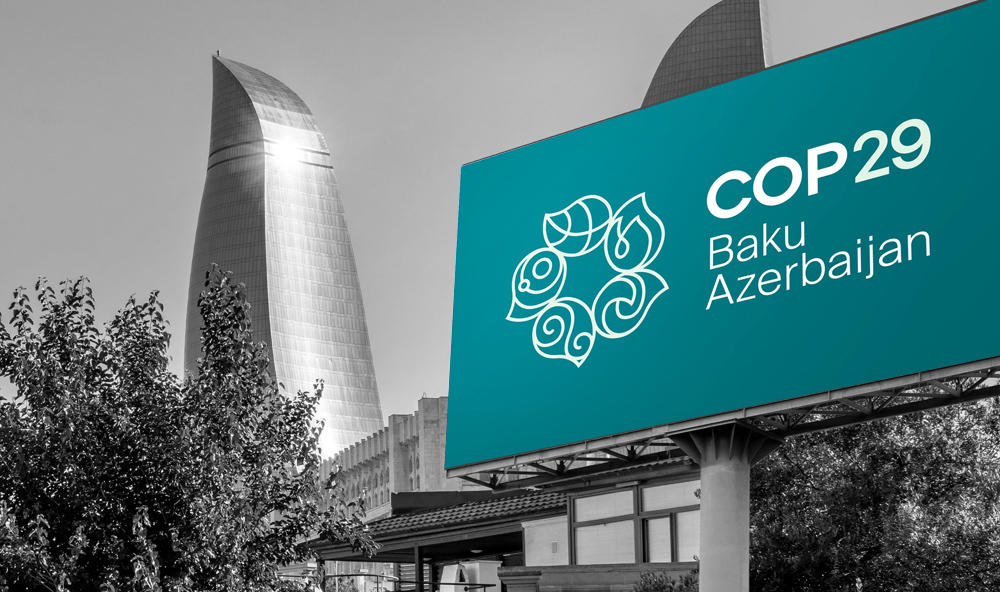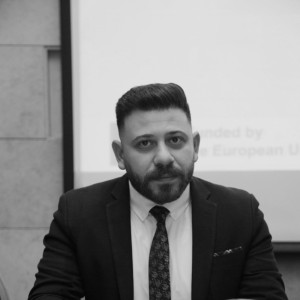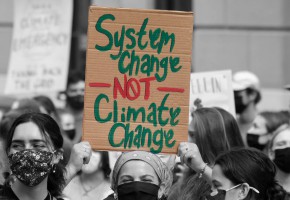

Will COP29 Be any Different? – Ahmad Bali
The developments witnessed by humanity throughout the ages, including massive industrial and technological revolutions and scientific progress, did not occur without adverse effects on many aspects of life, especially those related to climate change and its destructive impact on natural habitats and human life. These changes are considered some of the most prominent challenges of the era. Their repercussions on various sectors of life include flash floods and frequent changes in weather patterns that threaten water and food security, which is expected to be a significant cause of increased migration and the outbreak of conflicts over natural resources.
Successive governments in various countries should have paid attention to these problems and found joint solutions to address them and reduce their effects. However, global cooperation between countries to solve these problems was evident in several efforts, mainly the United Nations Framework Convention on Climate Change in 1992, the start of the Conference of the Parties (COP) process in 1995 in Berlin, and the Paris Agreement on Climate Change, which was adopted by 197 countries in 2015 and entered into force in less than one year. However, despite more than 150 environmental agreements since the beginning of these efforts, the current situation does not bode well, especially in the countries of the region most affected by the repercussions of this change and ongoing unrest.
In our Arab region, it has become apparent to those who follow environmental affairs and those who do not that climate change has direct and indirect repercussions on societies. It led to the emergence of many modern terms related to the participation of residents of the most vulnerable areas in our societies and their involvement in confronting the impact of climate change. These terms include but are not limited to climate justice, gender justice, losses and damages, youth participation in climate change conferences of the parties, and resource governance. Arab citizens hear these terms periodically in news and radio broadcasts, scientific seminars, social media, and political salons.
On the other hand, local, national, and regional efforts by civil society organizations and non-profit donors have shed light on involving youth and women in mobilization, advocacy, and gaining support to influence successive governments to find adequate spaces for them to express their opinions and ideas emanating from their dire reality and experience in this field. Many young popular movements were established throughout the decades to shed light on climate change, its causes, and the reasons for confronting it. Many of these blocs and movements had the opportunity to attend many COPs, especially in recent years, as they were held in regions affected by the damage, such as the Arab countries. COP 27, held in the Arab Republic of Egypt, and COP 28, in the United Arab Emirates, witnessed the participation of many Arab youths supported by the institutions mentioned above to be witnesses to these meetings and negotiation sessions that shape the future of our country and the compensation mechanisms suggested by government representatives.
When asked about expectations for the outcomes of the next COP, the one that follows it, and the one that preceded it, young people give two different answers depending on their scientific, intellectual, cultural, and political knowledge. Some expect outcomes that keep the rise in temperatures within the limits agreed upon in the Paris Agreement and accompanying measures from adaptation to limiting the effects of change, activities planned within national determinants, adaptation plans, compensation mechanisms from loss and damage funds, our financial share of that, the perspectives of countries North of us (influencers) and their contribution to annual carbon emissions. Conversely, some do not expect more than a travel ticket abroad and a post on one of the social media platforms. The vast difference between the two categories is due to selection and preparation mechanisms by institutions and donors for young people to engage in this national and regional duty, whether as participants or future negotiators.
As a youth environmental and climate activist and a member of the Arab Youth Network, I believe Arab youth must determine national and regional priorities to work on them hand in hand in a sustainable manner that guarantees our rights and the rights of future generations under one broad umbrella linked to achieving all the SDGs, not just those related to climate change. We must form specialized committees to determine the real priorities, environmentally and politically, that are subject to periodic review within the framework of accountability and transparency. The frequently mentioned youth priorities and agenda focus on civil society's role in preventing and responding to climate-related disasters, women’s livelihoods in light of a just transition, and the role of youth in climate dialogues and their implementation.
Over the years, young people have held many local and regional conferences on climate change, including several versions of the Local Conference on Youth (LCOY) and the Regional Conference on Youth (RCOY). They shared scientific knowledge and identified priorities, such as the water, energy, and agriculture sectors and their relationship with the environment, and raised awareness. They focused on several topics, including what young people can do to confront the effects of climate change and promote green growth. They published youth statements on climate change, which include tangible policies that will enhance their commitment to confronting climate change, adapting to it, and enhancing their role in mitigating its effects. It is a significant role due to what it requires in terms of innovative solutions led by young people and transferring them to the negotiating halls in the aforementioned conferences through government representatives. However, the impact is weak due to the fragility of young people’s experience in the priorities identified by governments, national contexts, and the topics addressed in the conferences.
This year’s Regional Conference on Youth (RCOY MENA 2024) will be held in Amman, Jordan, from 27 to 29 September 2024. The theme is “Building Climate Resilience, Security and Peace: Empowering the Region’s Youth to Take Climate Action in Conflict and Disaster-Affected Communities” to amplify the voices of youth leaders in the Middle East and North Africa (MENA) region. The event focuses on localizing climate talks, uniting youth voices, and driving effective climate action. It aims to contribute to international discussions on climate action, empower youth, promote regional unity, facilitate the exchange of ideas, highlight youth-led innovations, and strengthen Jordan’s role as a pivotal hub for effective youth engagement in climate resilience. It targets approximately 300 participants, including youth, indigenous peoples, refugees, host communities, high-level officials, climate experts, civil society leaders, NGOs, climate activists, and students from Jordan and the region. Like its predecessors, the conference is expected to convey the voices of the region’s youth to the international community, enhance participants’ understanding of climate crisis issues, ensure adequate representation of vulnerable groups, provide a platform for open dialogue, connect young climate activists with stakeholders to achieve practical impact, and showcase innovative solutions to climate change!
On the other hand, COP 29 in Baku, Azerbaijan, to be held between 11 and 24 November 2024, is also taking place in an affected country. The Conference Presidency launched the Baku Transparency Platform to support the capacity-building efforts of developing country Parties in preparing and finalizing their two-year transparency reports. Thus, the international community can better track progress, build confidence, and identify areas that require further action and investment to address climate change.
“The COP29 Presidency launched the Baku Global Climate Transparency Platform (BTP) as a crucial step to enhance ambition to achieve the next generation of national climate plans,” said the President-designate of COP29, Mukhtar Babayev, Minister of Ecology and Natural Resources of Azerbaijan.
Ultimately, the soon-to-be-held COP29 is supposed to put human rights at the heart of its agenda. Regional youth representation conveys that although the dream is enormous and the reality is painful, we must aspire and work hard to confront our fears and achieve our agenda as aware and educated youth. The role of youth as qualified negotiators must be included, speaking in their own language and not in the language of others in the corridors of negotiations. They are most competent in participating and raising their issues and aspirations in the absence of international security and peace, which we call for in our conferences and which is absent in many countries of the Arab region. In the presence of blatant double standards, will anyone respond?
Ahmad Bali
Recent publications

ANND Newsletter January 2026 - From Davos to the UPR: Between Promises, and Accountability
Related publications

An Alternative progressive cycle and a revitalized multilateral system - Roberto Bissio

